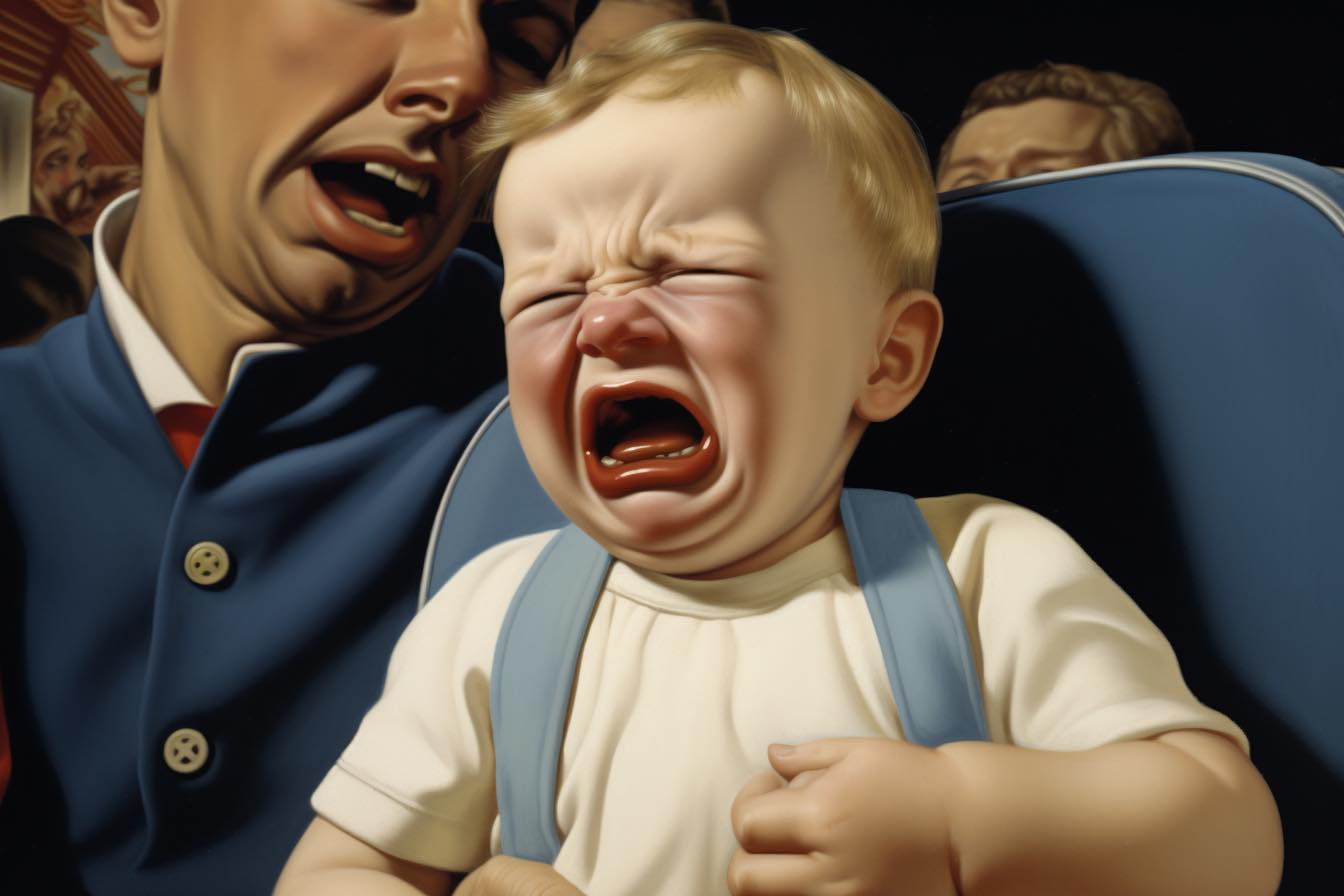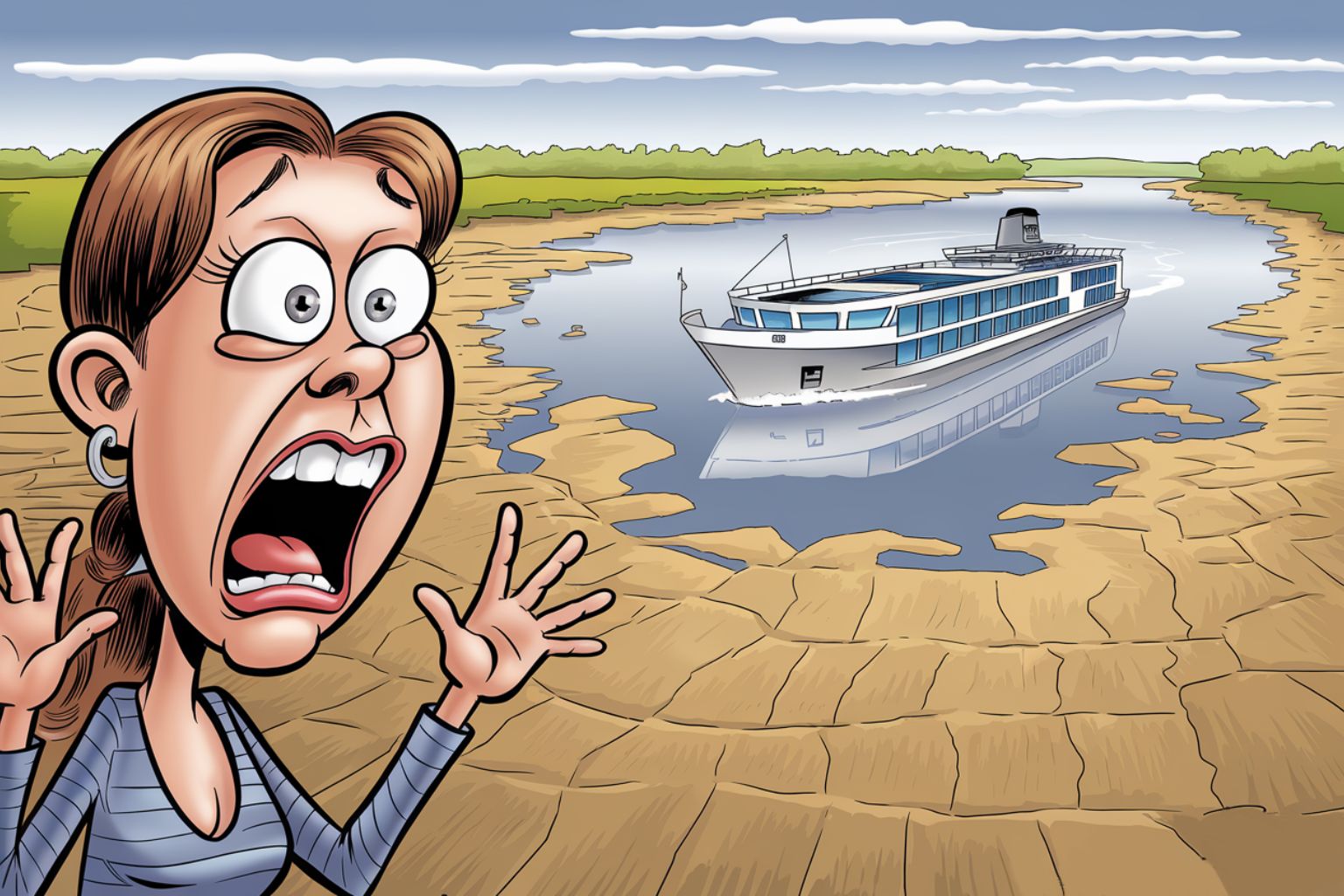Is it time to finally ban screaming babies from the plane? How about argumentative passengers? Or people who smell bad?
Those are serious questions. Congress is considering a nationwide no-fly list for disruptive passengers and customer blacklists are as popular as ever.
Banning the biggest troublemakers in the skies, as the Protection from Abusive Passengers Act proposes, is an idea worth considering. So maybe this is the right time to figure out who belongs on that list.
Here’s the official answer: Under the law, passengers would land in the no-fly database for one of several offenses, including a conviction for assaulting, threatening or intimidating a crew member of an aircraft.
Unofficially, passengers have far different opinions on who should get grounded. And they are not shy about creating their own no-fly list, sometimes on the fly. Consider the recent Frontier Airlines flight in which passengers voted to remove an unruly passenger. Talk about frontier justice.
But making a “no-fly” list of disruptive passengers may be impractical when you start thinking about it. There may be a more effective way to deal with difficult air travelers.
Should we ban babies?
Babies — especially the screaming ones — are high on the list of in-flight annoyances. And those of you without kids will probably add, “Is there any other kind?” Who can forget that viral video of an adult passenger on a recent Southwest Airlines flight losing it because of a screaming infant?
Under normal circumstances, air travelers are far less vocal about getting rid of babies on planes. Some travelers have told me that well-behaved children should be able to fly. But responsible parents ought to carefully consider their air travel plans if they know they have a cranky little flier.
It becomes a much more interesting debate when you ask if babies should be allowed in first class. Passengers have quietly signaled their support for child-free premium cabins, or at least a kids’ section in the back of the plane.
Bottom line: Banning all babies is impractical, and probably also illegal. But it wouldn’t surprise me to see a viral video incident or two this summer involving irresponsible parents getting kicked off a flight.
Should disruptive passengers be banned?
Misbehaving passengers are another category of bannable flier. And here, too, it’s clear that air travelers have a broader definition than lawmakers.
“Being disruptive in what could be a dangerous situation is unacceptable,” says William Muller, a restaurant manager from Miami who travels to Europe frequently. “If someone has so little self-control that they can’t wait until the plane lands to address whatever issue they have, then they should not be allowed to fly.”
Mueller defines disruptive as a passenger who is so out of control that the plane has to be diverted or resulting in the passenger needing to be removed from the plane before takeoff. But he says other air travelers may have a more inclusive definition of disruptive.
They do. If by “disruptive” you mean the person sitting next to me who can’t stop talking, then we could be talking about half the plane. What about the guy who keeps hitting up the flight attendant for another drink — or hitting on the flight attendant?
Here, too, we’re entering dangerous airspace. Do we need to pass a psych evaluation to get permission to fly? (Related: Unintentional things can and do happen on a plane.)
Should air travelers pass the sniff test?
Of course, it’s not just behavior that can get you banned as a passenger. It’s also how you smell. Or look. Every summer, there’s at least one well-publicized incident involving a passenger wearing an inappropriate T-shirt. Flight attendants order the passenger to change shirts, the passenger makes a TikTok about it, and life goes on.
Smells are more complicated. How do you define a bad smell? Is it someone wearing too much perfume? The wrong perfume? Someone who skipped a shower that morning? Someone who doesn’t believe in showering? Flight attendants have to make that call quickly when everyone is piling on board. And then, if you happen to be stuck next to someone who stinks, you have to deal with it. (Related: Sitting next to an unruly airline passenger? Here’s what to do.)
How about sick passengers? They shouldn’t fly, either, if they’re contagious. Janet Ruth Heller recently sat in front of two passengers who were coughing and sneezing the entire flight.
“They were not wearing masks, and they did not cover their mouths with their hands,” recalls Heller, a frequent traveler and retired college professor from Portage, Mich. “I caught their disease and was very ill for a month.”
So now we have to medically screen passengers? This is getting complicated.
On second thought, maybe no passengers should be banned
All this talk of banning may be taking us to the wrong place. Stopping a violent or unruly passenger from flying is only the beginning. Margaret King, director of The Center for Cultural Studies & Analysis, says other groups could quickly follow, including anger management failures, drug addicts, and “maybe even passengers who are anxious and depressed.”
It could soon spiral out of control. People with comfort animals or carrying too much luggage could follow.
“It could become a long and inclusive list,” adds King. “Any condition that promotes disruptive behavior would be eligible. And that, when you think about it, is a widely distributed trait.”
Come to think of it, this idea of having a nationwide no-fly list might be a terrible idea, too. We already have a way of preventing criminals from boarding a flight. It’s called prison. And how about terrorists? There’s a terrorist watchlist.
Airlines and their friends in Congress believe the best way to stop more unruly flier incidents is to stop the unruly fliers from boarding. But maybe the fliers are unruly because flying is such a dehumanizing experience. Fix that and maybe you won’t need a no-fly list.
Elliott’s strategies for handling a disruptive flier
Are you ready to share a plane with a disruptive passenger? Neither am I, but here are my strategies for surviving the flight.
Move to a different seat. The best advice for handling a problem passenger is not to handle one at all. Discreetly ask a flight attendant if you can move to a different part of the plane. Or, if there’s an empty seat in the same class of service, just move.
Apply gentle peer pressure. For baby-on-board incidents, a polite and nonconfrontational appeal to the parents can help. You know, if a toddler is using the tray table as a drum set, it’s OK to say something to Mom and Dad. The same strategy works with other groups, but don’t be too confrontational. Wouldn’t want to end up on TikTok now, would you?
Ask a flight attendant for help. Crewmembers are trained to handle confrontations with disruptive passengers. Again, you might want to ask the flight attendant for help — out of earshot of the disruptive passenger — unless the passenger is a screaming infant.
Your thoughts, please
I’d love to get your comments on which airline passengers deserve to be banned this summer. The comments are open.




